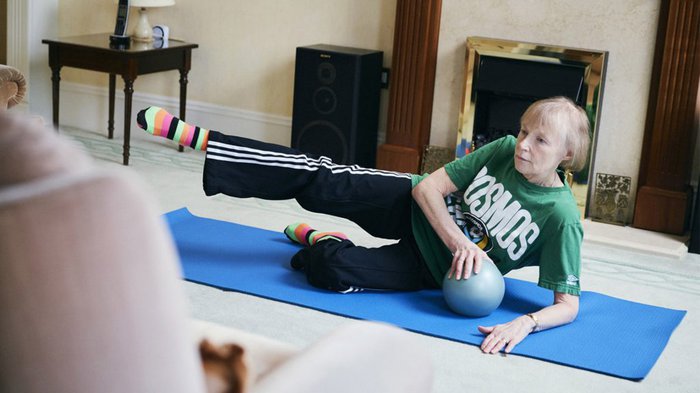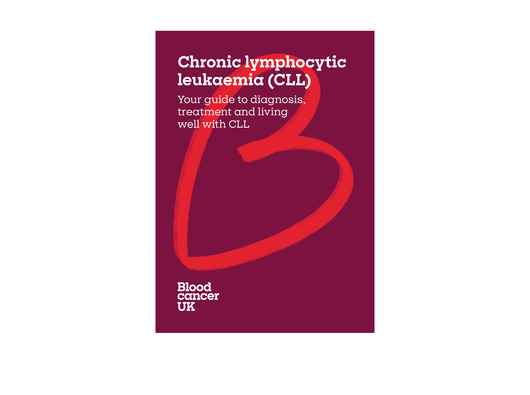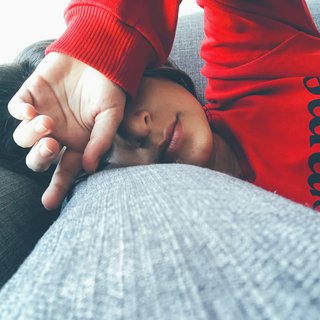Fatigue won't stop me enjoying life
Erica, 70, was diagnosed with chronic lymphocytic leukaemia (CLL) in 2003 and has been on watch and wait (a way of monitoring blood cancer) since then.

Erica, 70, was diagnosed with chronic lymphocytic leukaemia (CLL) in 2003 and has been on watch and wait (a way of monitoring blood cancer) since then.
Before I had cancer, I only had the vocabulary of ‘tiredness’ – I’d never really known what fatigue was. I went through life at 100 miles an hour. But one of the biggest symptoms of CLL is the extreme tiredness, which I now realise is called fatigue. It’s completely different to normal tiredness. My husband says he can see me go in my eyes.
It’s as if your tanks are running on normal and then, suddenly, they’re just completely depleted.
Working out the triggers
The fatigue has got better since I was first diagnosed. I think that’s because I’ve learnt to manage it and accept that it’s there. Now I don’t notice it as much on a day-to-day basis.
For me, the fatigue either comes on immediately or up to 48 hours after I’ve overdone it physically or emotionally. I don’t deal with stress well since I’ve been diagnosed, and anything that I find stressful will bring the fatigue on.
The worst thing is being in my own head. My mind goes into overdrive if it’s worrying about something, especially if I’m not feeling well. The first thing I think is, “That’s it, something’s gone wrong with the leukaemia.” It doesn’t matter how far down the road I am in years, the anxiety comes straight back.
Balancing rest and activity
I’m coming round to thinking that fresh air and gentle exercise can actually help lift my energy levels. It takes my mind off the fatigue, too.
Pilates is my big thing – I've found video sessions online, which means I can do it from home when I can't get to my classes. Walking is also great. It’s free and, if you’re nosey, it’s a lovely occupation.
Sometimes I just need to have a nap. Even hiding under a duvet for a bit helps!
Trying to pace myself
I try and declutter my life, organise myself as much as I can – just silly things, like writing Christmas cards early. I have to be careful though. If there are too many things on my to-do list it stresses me out.
Another way I manage my fatigue is that I don’t do evenings. I do mornings, I’ll do lunchtimes, and early afternoon, but then my energy levels are sapped. So I’ve chosen not to make plans in the evenings. I've come to terms with that.
I can be my own worst enemy and overdo it. I really have to keep reminding myself that I don’t need to do everything at once.
Finding activities that are right for me
I am retired now, but I volunteer as a digital ambassador for Blood Cancer UK. It’s something that I can do sitting in bed! I’m supporting patients, family, friends and carers on the community forum. It’s especially rewarding when I get the feedback that I have helped somebody.
Explaining fatigue to other people
People just don’t understand. If you haven’t had fatigue, you’ve got no conception of it. In a way, I feel less pressure to try and explain it to other people because I am quite a way down the road.
There are people in my life that don’t know about my diagnosis, and that’s rather nice. I found when I was first diagnosed, and for a while afterwards, I was Erica with leukaemia, not just Erica.
Now, I’ve got a life. I’ve got a good life. I really enjoy myself. I don’t want the fact that I’ve got leukaemia to be on my mind 24/7.
By learning to manage the fatigue and other symptoms myself, my quality of life is so much better than when I was diagnosed. My advice to others is – listen to your body, try and de-stress your life as much as you can do, give yourself time after diagnosis and get to know yourself.
Your guide to CLL
Erica helped make our new guide to CLL, which covers:
- finding out you have CLL
- understanding CLL
- coping with watch and wait
- treatment options
- living well with CLL
- real stories of people living with CLL
You can order it for free from our online shop

Janssen-Cilag Ltd has supported Blood Cancer UK with funding for the production of this web page and others within the ‘Living well’ section. It had no influence over the content.

